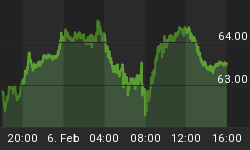You read that right. Not only is Italy selling 50-year bonds, but people are lining up buy them.
Italy's first 50-year bond sale had huge demand
(Reuters) - Italy sold its first 50-year bond on Tuesday as some investors bet the European Central Bank may soon add ultra-long debt to its asset-purchase stimulus scheme.
About 16.5 billion euros of orders were placed for the bond - 5-1/2 times the expected sale amount, despite concerns over Italy's banks and an upcoming referendum that could unseat its prime minister.
Many of the fund managers who lend to Italy - and those who have already bought 50-year bonds from France, Belgium and Spain this year - may not live to see it paid back. Those who signed up to Ireland's 100-year bond in March almost certainly won't.
But they could make quick gains if the ECB extends the maturity limit on its bond-buying scheme later this year, in an attempt to prolong its 1.7 trillion euro programme.
Analysts say such a move could be among tweaks expected in December to allow the central bank to continue quantitative easing beyond its scheduled end in March 2017.
"It is one of the least sensitive options from a political, technical and legal perspective," said Frederik Ducrozet, senior European economist at Swiss wealth manager Pictet.
For those not familiar with Italy, a good place to start is the Wikipedia list of Italian prime ministers. Spoiler alert: They've had a million of them, and few have lasted more than a couple of years. This is the quintessential ungovernable society.
Meanwhile, its banks are pretty much zombies, loaded with fatal levels of bad debt but still shambling around thanks to repeated bailouts. The government runs consistently excessive deficits, so its debt load is growing at an unsustainable rate. And its people are more worried about protecting antiquated labor and tax regulations than competing successfully in a modern global economy.
And yet bond investors love the country's debt. The reason, as the above article explains, is that no one thinks of these bonds as Italian. Once the ECB buys them up (at a nice premium to the initial sale price) they'll become, in effect, German debt, guaranteed, via the ECB, by that much stronger, better managed economy.
So in the minds of bond buyers they're not lending money for 50 years, but more like six months, until the ECB starts snapping them up. Which means the ECB is, in effect, directly funding the Italian government with newly-created Euros. Italy - and the rest of the peripheral eurozone countries - are thus handed an effectively-unlimited credit card allowing them to spend whatever they want, safe in the knowledge that it's all covered by their friends in Brussels and Berlin.
Wonder how they'll handle that freedom?















